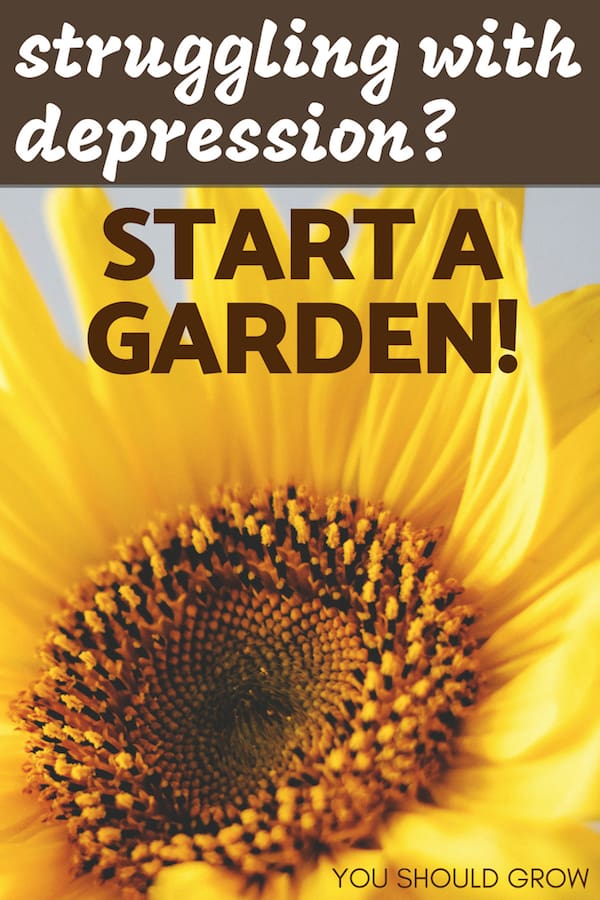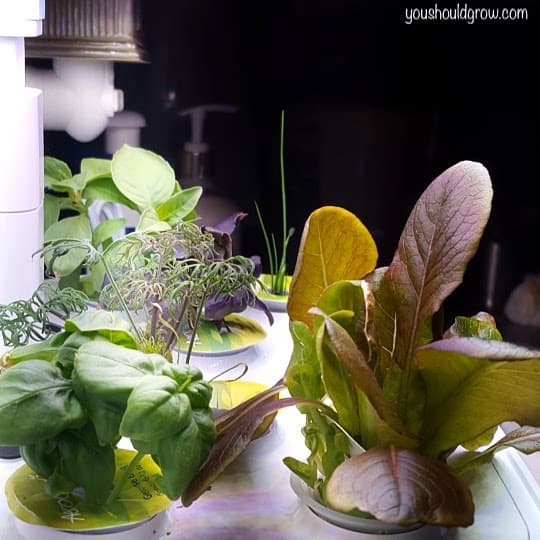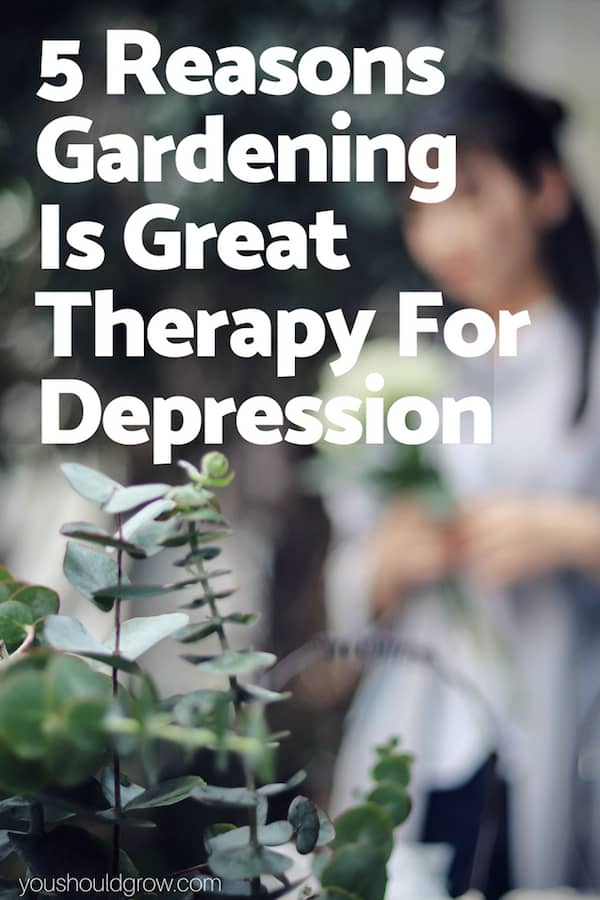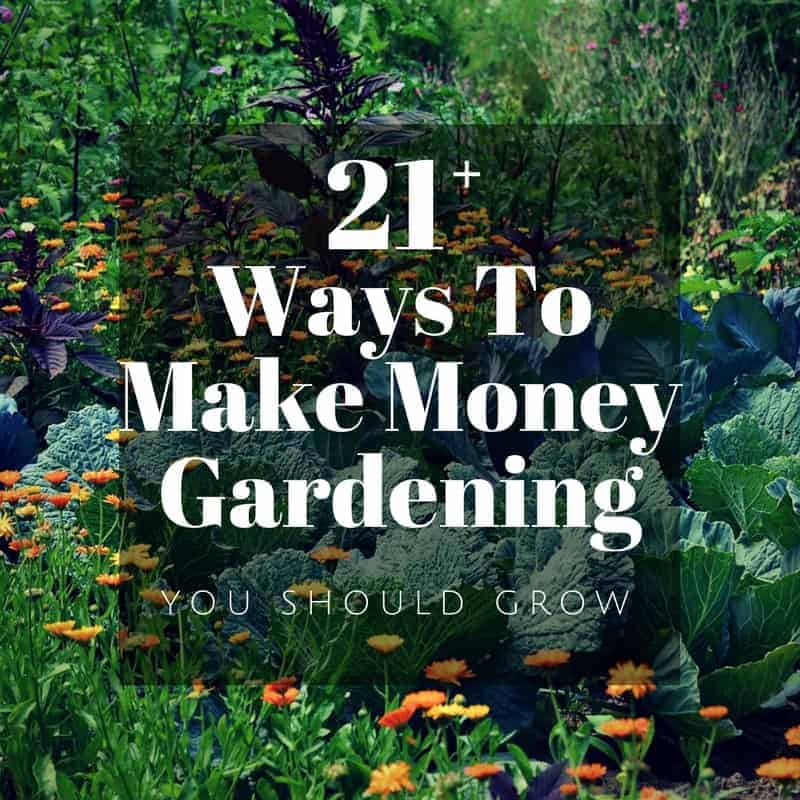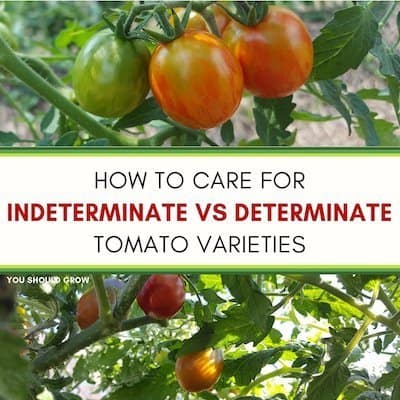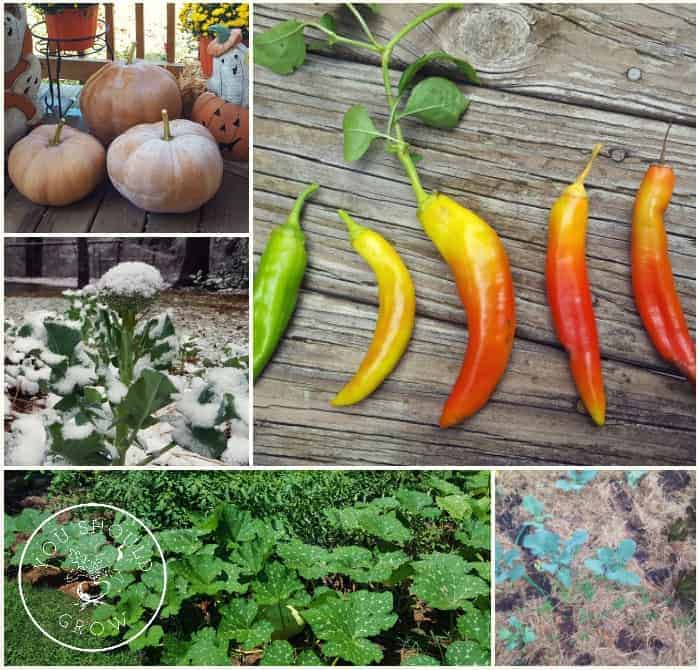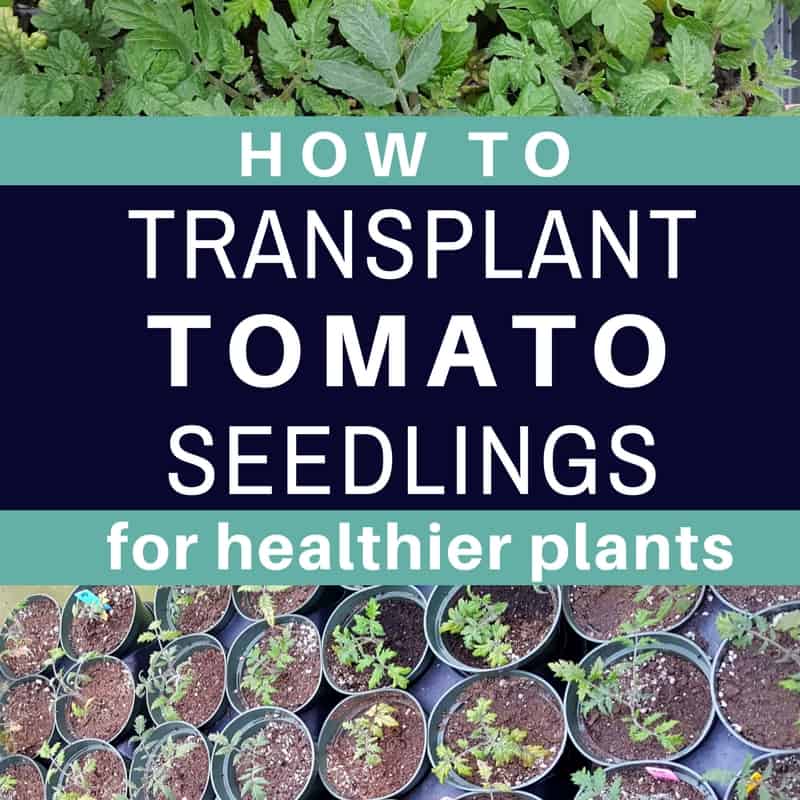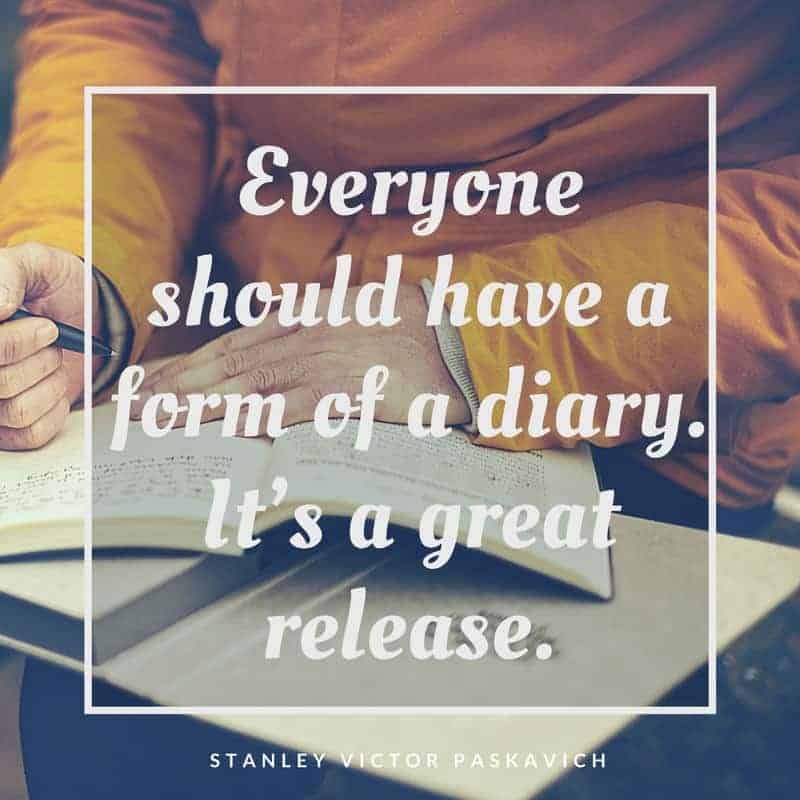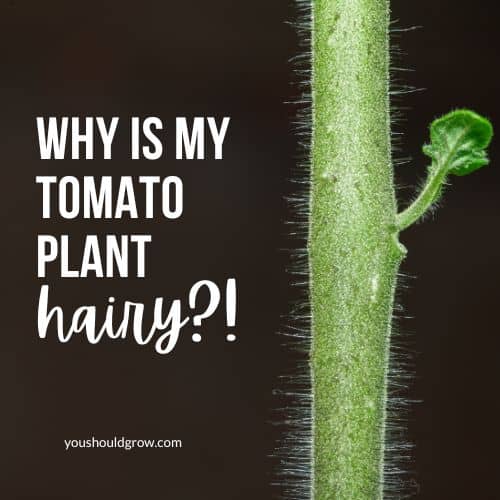Horticultural Therapy: 5 Reasons Playing In The Dirt Makes You Happy
As an Amazon Associate and member of other affiliate programs, I earn from qualifying purchases.
Depression is something that affects many people, regardless of their age, ethnicity, gender, or social status. In some cases, it is something you are born with, and in other cases, it develops over time.
Regardless of where your depression comes from, it’s natural and healthy to be looking for a way to relieve the symptoms and learn to live a happy, fulfilling life. This can be difficult when all you want to do is stay home in a dark room and wait for the time to pass.
If you are dealing with depression, your therapist can provide a variety of treatment options. There are antidepressant medications, cognitive behavioral therapy, and even becoming involved in certain activities.
Many doctors and mental health professionals advise people who suffer from depression to take up a hobby. This won’t cure your depression, but it often gives you something else to focus on during your darkest moments. It also gets you out of bed and out of the house in many cases.
Gardening is one of the most popular activities for people with depression.
It is good for depression for a number of reasons, from getting you outside to catch some vitamin D from the sun’s UV rays, to having something you care for and watch thrive from your efforts.
As someone who has struggled with depression since my teenage years, I can vouch for the effect gardening can have on your mental health. Tending to plants is not only a distraction from negative thoughts, but simply spending time in my garden has an immediate calming effect on me.
If you are someone that has feelings of hopelessness, loss of interest in normal activities, insomnia, irritability, and self-loathing, you might be suffering from depression. In this post, I’m going to outline how gardening can help you.
Horticultural Therapy and the Mental Health Benefits of Gardening
Let’s first talk about why gardening therapy for depression works. And it’s not just for depression. Gardening can help with other mental health disorders like anxiety. When gardening is incorporated into a mental health plan, it is called horticultural therapy.
Therapists and gardeners report that you get an almost instant mood lift just from tending your garden. Some specialists believe the benefits of gardening would apply when participating in an outdoor activity, while others believe it goes much deeper than that.
Gardening Uses Multiple Senses
Being outside in your garden is much more stimulating to your senses than staying holed up inside your room.
You have the sounds of nature in the bees and birds, you feel the seeds, soil, flowers, and plants underneath your fingerprints, and you can smell the many aromas of nature while you are gardening. This provides a lot of positive cognitive stimulation which is known to be helpful with people who struggle with mental illness.
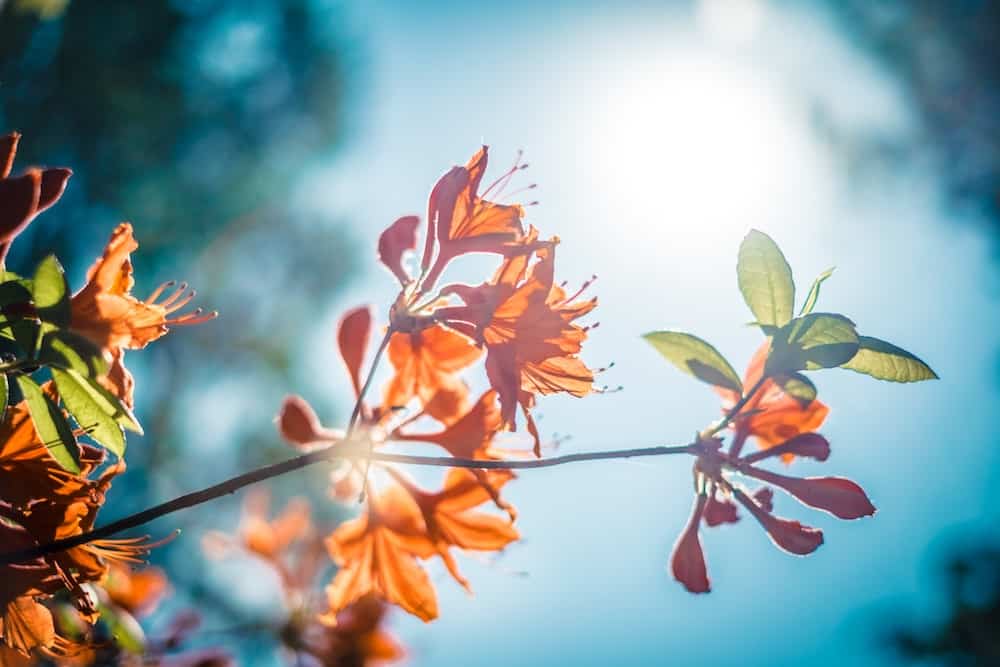
The Satisfaction Boosts Your Mood
Of the many gardening therapeutic benefits, the feeling of satisfaction you get from taking care of plants is my favorite. This occurs during nearly every step of the gardening process.
From choosing which plants to grow, preparing your garden beds by clearing out weeds and amending the soil, to planting and watering your plants and then, of course, the joy of watching them grow.
Gardening as a hobby keeps you engaged from the very beginning. Incorporating vegetables and herbs into your garden also provides you with fresh, healthy food.
You Raise Your Endorphins
Don’t forget about those endorphins! Any form of exercise can really get your blood pumping, which allows your brain to release endorphins, the chemicals in your brain that produce happy feelings.
Gardening is a highly physical activity that gets you sweaty, burns calories, and elevates your body temperature, all of which can lead to releasing those wonderful endorphins.
It Boosts Your Self-Esteem
Part of depression for many people is feeling inadequate in comparison to others. You might feel very down on yourself and are constantly self-deprecating. This can lead to an overwhelming sense that you aren’t good enough which can send you into an even deeper depression.
I am very familiar with the habit of repeating negative thoughts while I’m feeling depressed, and I know how hard it can be to stop that obsessive thinking. The trick for me is to not to indulge in my personal poo poo platter.
I decline negative thoughts, and I use distraction. Distraction can come in the form of singing a song, repeating a positive word over and over, or, you guessed it, getting out in the garden.
Pulling weeds, trimming tomatoes, admiring flowers, warm sun on the skin, yeah, those are great distractions.
Not only that, when you’re in your garden you can be proud of what you’ve done. When you are successful at growing your favorite plants and actually see the fruit of your labors, it helps to boost your self-confidence.
Gardening Can Balance Out Your Serotonin and Dopamine Levels
Delving a little deeper into how gardening is a natural antidepressant, we come to the topic of neurotransmitters. Serotonin and dopamine are two neurotransmitters that can have some control over how you feel.
Serotonin is a chemical neurotransmitter that sends signals to your brain and affects your mood, sexual function, memory, sleep, appetite, and even your social behavior.
The physical acts of gardening can raise your serotonin levels. Getting your hands dirty, getting in a little physical exercise, and feeling the satisfaction for your gardening efforts can help raise your serotonin levels.
Recent studies have even suggested that exposure to a certain bacteria in the soil, Mycobacterium vaccae, can increase levels of serotonin. You are exposed to this antidepressant microbe in the soil simply by getting your hands dirty.
Since low serotonin levels are often linked to depression increasing serotonin through gardening can help you find some relief with less depressive episodes overall. Isn’t it cool that the dirt actually can make you happy?
Gardening Helps Boost Your Dopamine
Dopamine is another chemical in your brain that can be improved with gardening. Dopamine can affect your mood and various other systems within your brain and body.
This neurotransmitter has the potential to turn into a form of epinephrine which can help give you a feeling of euphoria in a natural way, similar to how exercise releases endorphins.
There have been suggestions of a link between high levels of dopamine and the harvesting of gardens. It seems that when you hunt and gather, as well as harvest the flowers and vegetables you have grown in your backyard garden, it gives you a nice boost of dopamine.
This turns into happy feelings and an uplifted mood, which can then help with your depression.
How to Get Started With Gardening
Now that you know the different ways gardening can help with your depression, it is time to learn the act of gardening itself! Remember that this is an activity with a lot of different options. You don’t have to be an expert gardener that plants an elaborate display of exotic flowers in your yard.
You can start small and work your way up. There is a lot to learn, so don’t hesitate to get some gardening books as well.
Here are some beginner tips for getting started with gardening.
Know What Grows in Your Area
First of all, you need to get to know your region and figure out what grows well in your area. This requires looking at zone maps to determine your region, then finding out what grows best in your region. For the United States, the USDA Hardiness Zone Map is what most people go by. There are 11 different zones, each of which has different weather, climate, and soil conditions.
Test and Prepare Your Soil
Once you know what can be grown in your region, you need to learn a further about what you will be able to grow. You don’t want to cause more stress by growing something that never flourishes and discover you can’t get it to grow properly. Instead, take some time first to get to know your soil.
Just feeling around in the dirt will give you a lot of info about the quality of your soil. If it’s easy for you to dig up and move around, then it will be easy for roots to move through as well. You can never go wrong by adding compost to your garden soil, but if you want more information about pH and nutrients in your soil, sending off a sample for testing is the best way to learn about your soil.
Choose Between Seeds and Potted Plants
Next, think about whether you will plant seeds or young plants. For many landscaping plants, you’ll likely choose to purchase potted plants from your local nursery. But many flowers and food crops are easier than you think to start from seed. Sunflowers are especially rewarding and are super easy to grow.
Starting seeds indoors can be a bit more work but allows you to grow more variety in your garden.
Create a Fertilizer and Watering Schedule
To make sure you keep up with your gardening, create a schedule from the very beginning. Keep in mind that seeds need more care and watering in the beginning, more mature plants are hardier and require less maintenance.
Take Care of Pests
Don’t forget about pests! They can really do a number on your plants and make it difficult to keep up with them. While it’s tempting to use chemical sprays to get rid of pests, organic methods of pest control are healthier for your garden in the long run. Get to know the types of pests that frequent different types of plants and trees you are growing and try natural ways to eliminate the pests.
Different Types of Gardening
When you are starting a brand new garden to help with your depression, you should consider which of the different types of gardening is right for you. The type you choose might depend on where you live, how much space you have, what your other time commitments are, and simply what interests you the most. Here are some different types of gardening to help you decide which one is best for you.
Container Gardening
One of the easiest forms of gardening, container gardening is a wonderful way to start small. It is great for beginners and can be done inside or outside your home. With container gardening, testing the soil in the ground and having extra space are non-issues. Container gardening is best for the real novice who is just getting familiar with the act of planting flowers and other plants. You can have a container garden on your patio or balcony, even if you live in an apartment, or inside your home if you have enough light.
Vegetable Gardening
You may also want to grow your own vegetables and herbs to use for cooking and other benefits around the home. If your depression keeps you from eating healthy foods, this will be wonderful for you. Like other types of gardening, you can start small with just a couple of your favorite herb and vegetable plants. Growing fruits and vegetables offers the added benefit of providing you with healthy homegrown food. Fruits and vegetables are full of vitamins and help you maintain a healthy gut which has more to do with depression that you might think.
Indoor Gardening
In addition to container gardening you do outdoors, you might choose to grow a few houseplants. Some easy to grow indoor plants include snake plant, Chinese evergreen, spider plant, and English ivy.
Another way to grow indoors is to try one of the countertop hydroponic garden kits. These are not only great for having live plants around, but the bright UV lights are also beneficial for depression. On our kitchen counter, our Aerogarden is filled with lettuce, basil, chives, and dill.
Water Gardening
Don’t forget about alternative forms of gardening, such as water gardens. If you are someone that finds peace and calm when you are around water, then this is the perfect option for you. Water gardening has many options available.
All you really need is a basin or vessel that can hold water, so it can be a small pond, old bathtub basin, or even just a couple of plants inside a bird bath. Get creative with it! There are floating aquatic plants like duckweed and water hyacinth, and submerged plants like parrot feather and eel grass.
Easiest Plants to Start With
If you are feeling a little overwhelmed by the amount of information involved in gardening, even if you know it will help your depression, don’t worry! There are some plants that are easy to start with.
Pick just one of these plants and either plant in a container or in an area of your yard with healthy soil and plenty of sun. If you don’t have good soil, you can also use a raised plant bed.
This allows you to get the benefits of a container garden, but it blends in better with your yard’s natural landscape and it provides more space. Here are some suggestions for easy plants to grow in your therapeutic garden.
Marigold
Planting marigold is easy for beginners and provides your garden with a plethora of warm shades. Marigolds come in red, yellow, and orange, brightening up your backyard to offer a boost in your mood when you are having a dark day. Marigolds are easy to grow whether from seeds or potted plants, so give them a try!
Cleome
These are often seen in cottage-style homes, though you can plant them anywhere. They are very fragrant, so you get to open up another sense when enjoying your gardening. They come in pretty colors like magenta, pink, and purple. The cleome flower seeds just need to be spread around in the area you want them to grow, then water them. No covering or fertilization is required.
Cosmos
A fun name for a fun flower! Cosmos are beautiful annual flowers in many different shades, including yellow, orange, white, pink, and purple. They are good for low-maintenance gardens, which is when you don’t want to spend a lot of time and energy on your garden, but you still want the benefit of growing something to help with your depression. These don’t need to be covered and start sprouting from the ground in just a couple weeks.
Morning Glory
The morning glory is another wonderful flower to bloom in your garden. Morning glories are interesting flowers become they bloom in the morning, but close in the afternoon. You can add pink, white, red, and even blue to your garden by choosing these flowers. These delicate flowers grow on vines and are well suited for vertical gardens. However, these vines grow like weeds and can be invasive.
Sunflower
Many would agree that sunflowers are one of the happiest flowers. Imagine going in your backyard when your depression is at its worst, and being surrounded by sunflowers? This can give you an immediate boost of happiness and euphoria, which is what you want when you are trying to reduce those debilitating and hopeless depressive feelings. Sunflowers may look complicated, but they are a good flower for beginners. However, you should only plant them from seeds and never try to transplant them.
Final Words
Don’t let your depression overwhelm you to the point where you feel lost and no longer participate in other activities. See a doctor to get help, but also try some home remedies like gardening. Create a healing garden where you can let go of fear, frustration, and anxiety. You will be amazed by the impact it can make in your life.


